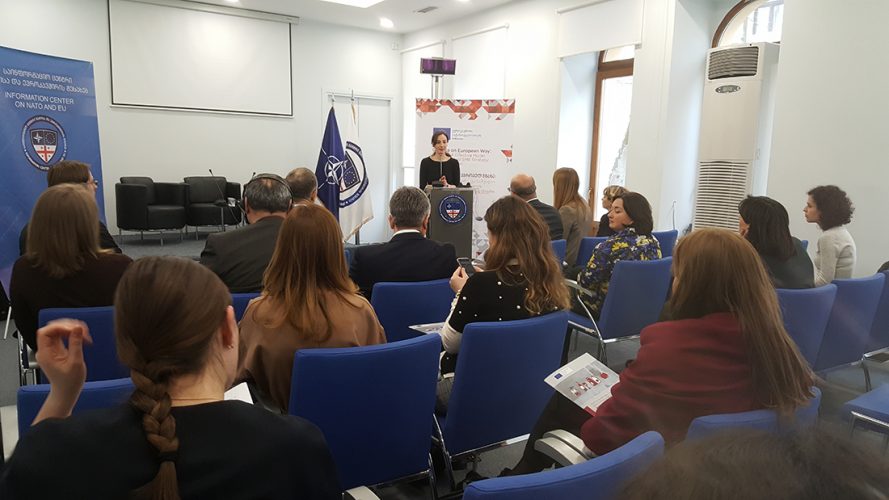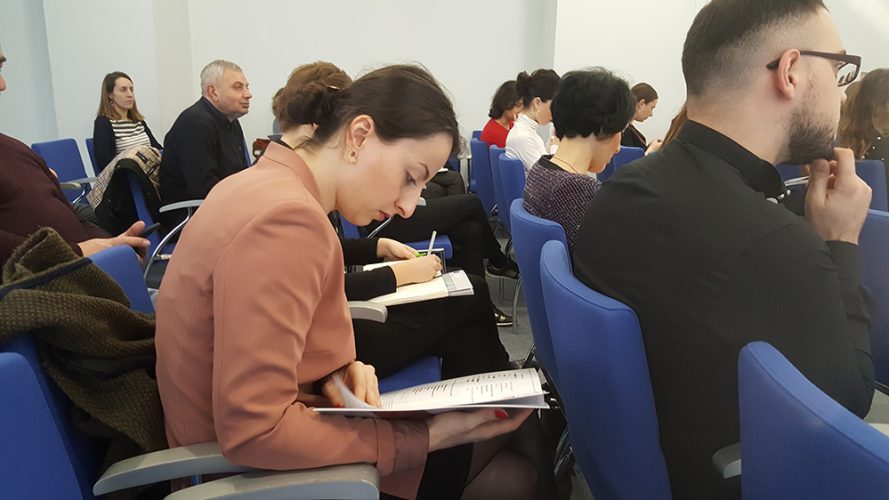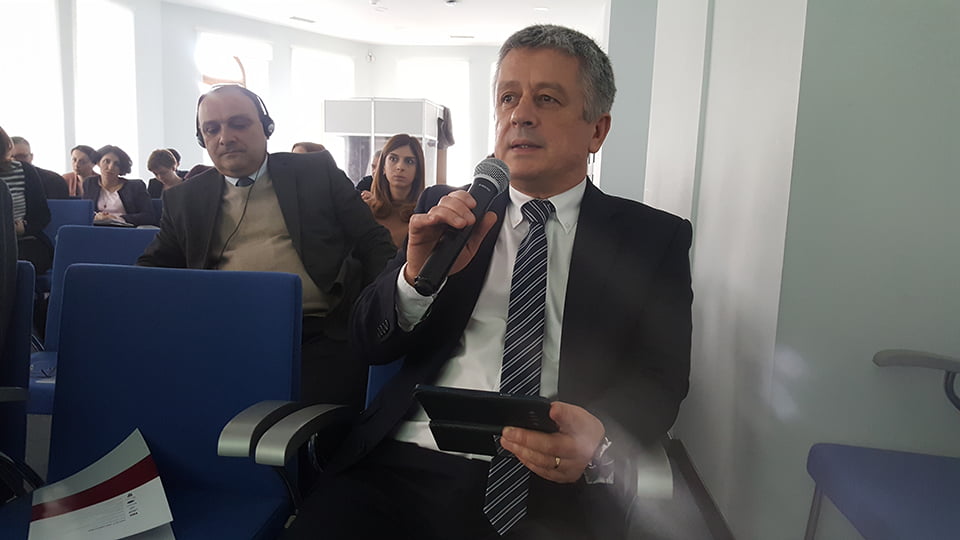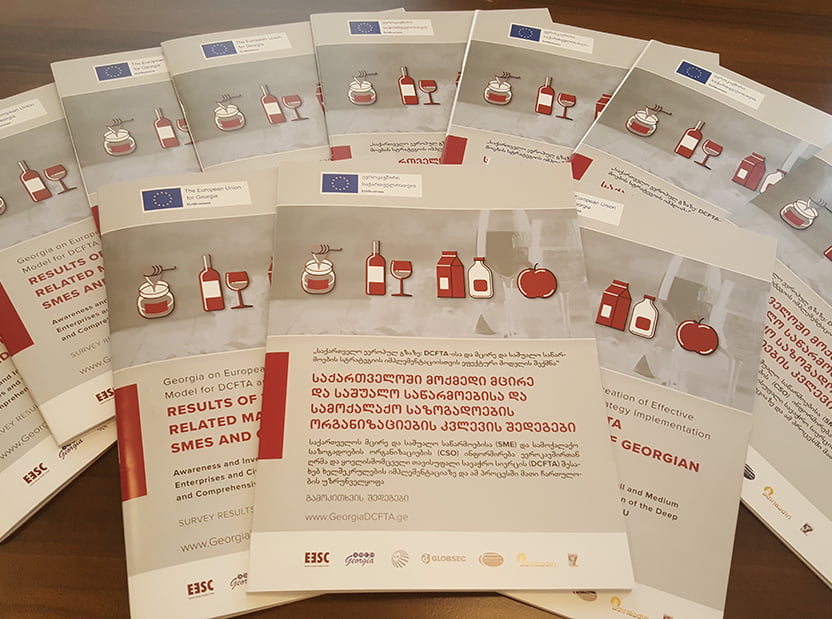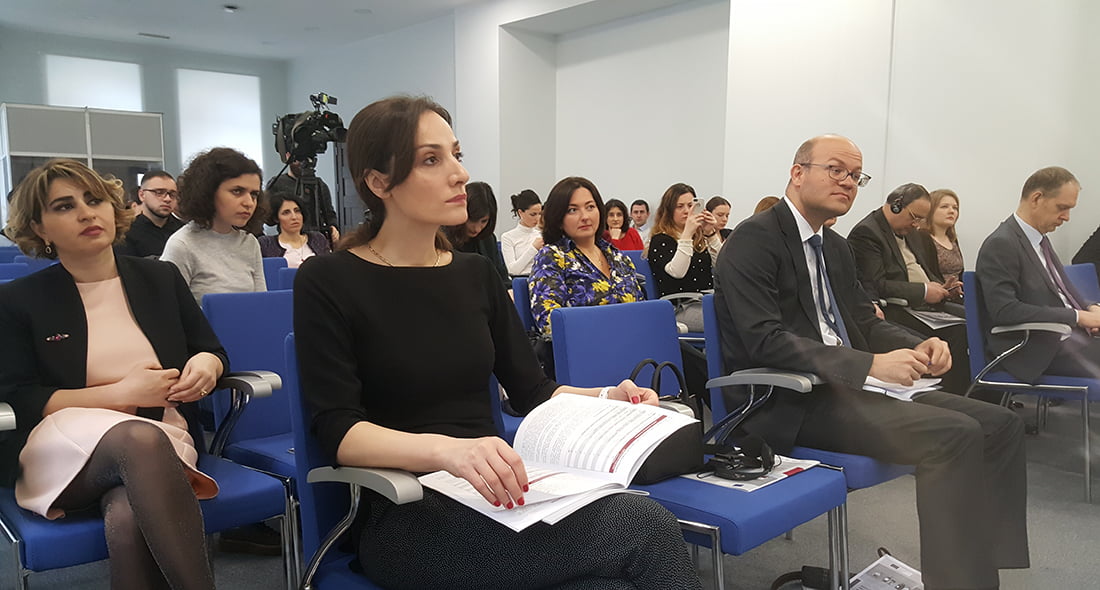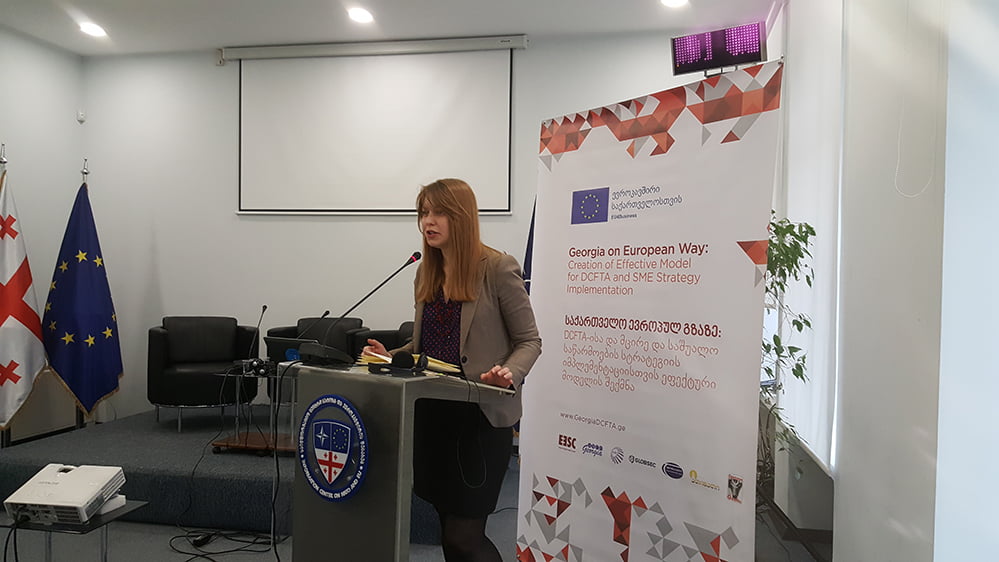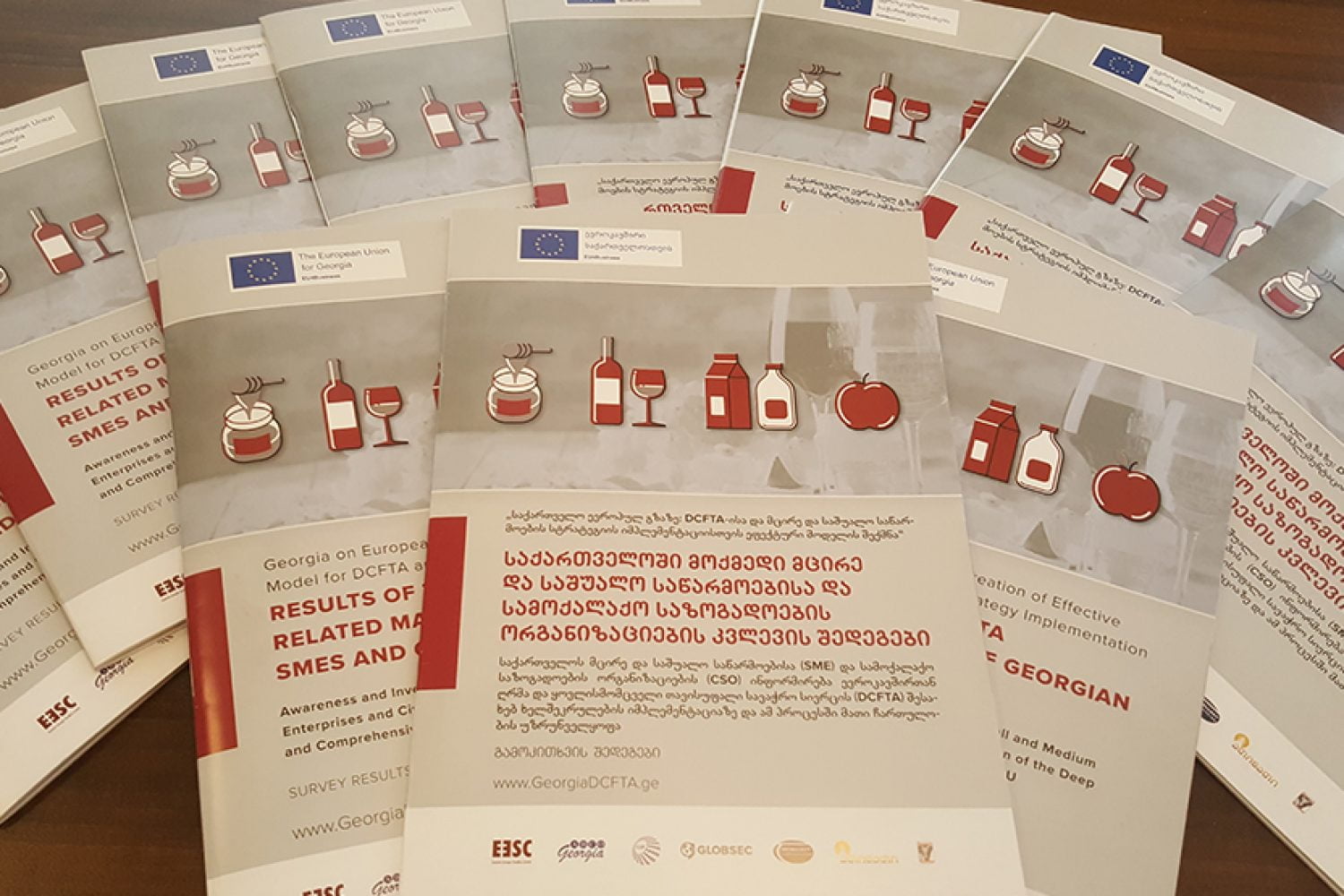An international consortium of non-governmental organizations has released the results of its two surveys conducted on civil society organizations and small and medium enterprises in all regions of Georgia. 168 civil society organizations and 559 small and medium enterprises in 61 municipalities throughout Georgia participated.
The surveys analysed the opportunities offered by the Deep and Comprehensive Free Trade Agreement (DCFTA) concluded between the European Union and Georgia and identified the main challenges for Georgian small and medium enterprises and civil society organizations.
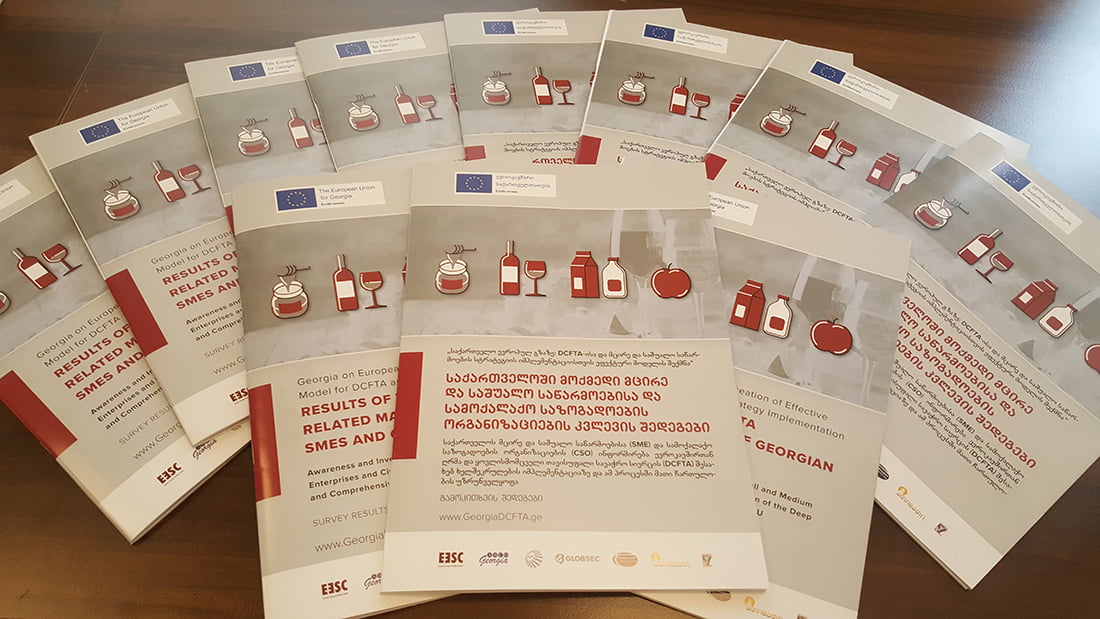
Results of the DCFTA Related Mappings of Georgian SMEs and CSOs.
“Georgian civil society organizations are more aware about the DCFTA and the opportunities it provides than regional small and medium enterprises. 1/3 of interviewed civil society organizations indicated that they are already working on DCFTA related topics,” said Natia Dagelishvili from Georgian Institute of Politics.
The survey conducted among small and medium enterprises revealed that out of all interviewed regional SMEs, only 23% are exporting their products. The leading export regions are Guria (47% of interviewed SMEs are exporting), Imereti (37.5%) and Adjara A.R. (33%), while the region of Samtskhe-Javakheti showed lowest export engagement (7%).
Also, only 15% of interviewed small and medium enterprises are exporting solely to EU countries; 27% are exporting both to the EU and other markets; while the majority of exporting SMEs – 58% – are exporting to non-EU countries.
“Despite the fact that Georgian small and medium enterprises view the DCFTA positively, they lack in-depth understanding and guidance on how to access the EU single market, where to look for financial support, and which production standards to apply in order to meet EU regulations,” said Konstantin Zhgenti from the Association of Business Consulting Organizations in Tbilisi.
According to Dominik Papenheim, the EU Delegation representative in Georgia: “Today’s presented project is one of several projects under the EU4Business initiative that supports Georgian small and medium enterprises in access to finance, stronger business skills and access to new markets. Since 2009, the European Union has provided 2.1 billion GEL (€711 million) in total for 63,000 Georgian companies in order to realise their full potential and boost economic growth.”
“The surveys discussed today are intended to lay the ground work for trainings among Georgian civil society organizations on DCFTA implementation. After the trainings, regional civil society organizations are to engage and assist regional small and medium enterprises in their efforts to access the EU single market. In addition, the Georgian public will be informed about economic opportunities stemming from the DCFTA,” said Dovile Sukyte from the Eastern Europe Studies Centre in Vilnius, Lithuania.
Georgia on the European Way: Creation of an Effective Model for DCFTA and SME Strategy Implementation is a project implemented by the international consortium of non-governmental organizations: Eastern Europe Studies Center (EESC, Lithuania) the Association of Business Consulting Organizations (ABCO, Georgia), Georgian Institute of Politics (GIP, Georgia), GLOBSEC Policy Institute (GPI, Slovakia), Association Caucasus Genetics (Georgia), ATINATI (Georgia) and the Young Scientists Union “Intellect” (Georgia). The project is being implemented between April 2017 and April 2019.
Media about the event:
Photos:
